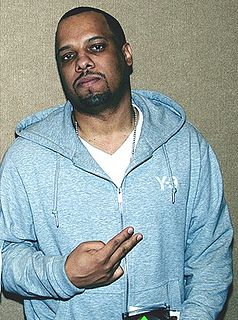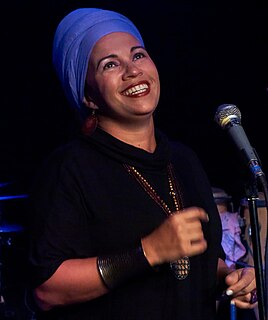Turkish hip hop refers to hip hop music produced by members of the Turkish minority in Germany, and to a lesser degree by hip hop artists in Turkey. The Turkish minority, called the Turks, first drew inspiration from the discrimination and racism they received while living as migrant workers in Germany in the 1960s. Turkish hip hop uses Arabesk music, a folk style that finds its roots in Turkey during the 1960s, and is influenced by the hip hop music of America and Germany. Album artwork, lyrical content, and the Turkish language are used by hip hop artists to express their uniquely Turkish identity.
As in other countries, the musical production in Tanzania is constantly undergoing changes. Music listened to by Tanzanians today stretches from traditional African music or the string-based taarab to a distinctive hip hop known as bongo flava.
Korean hip hop, also known as K-hip hop, is a subgenre of korean popular music. Korean hip hop is distinguished from American hip hop by not only sound and language, but also by the culture from which the music is made.

Orishas are a Cuban hip hop group from Havana, Cuba, founded in 1999. The group was first called "Amenaza", "threat" or "menace" in Spanish, and appealed to the Cuban youth who were hungry for African-American culture consisting of hip hop and rap. The group is based in France where they made a deal with a record company, although they visit Cuba frequently. In 1999 Fidel Castro threw a party for them and had a meeting with all the musicians. It was the first time the Cuban government showed support for hip hop music. The group was and still is popular in Europe and Latin America. Yotuel Romero and Ruzzo Medina, who moved from Havana to Paris as part of an international studies program, joined Roldán González and Flaco-Pro to form the band in 1999. Their work is influenced by the hip hop movement as well as Cuban and other Latin rhythms. As of October 2009, they had produced a total of five studio albums and a greatest hits album; their latest album is Gourmet. In 2009 they participated in the concert Paz Sin Fronteras II in Plaza de la Revolución, Havana, Cuba. Orishas reunited to record new material in 2016.
Hip hop music arrived in Cuba via radio and TV broadcasts from Miami. During the 1980s hip hop culture in Cuba was mainly centered on breakdancing. But by the 1990s, with the collapse of the Soviet Union and the onset of the Special Period, young raperos, exposed to foreign tourists whose wealth highlighted their struggle, turned to rapping to affirm their cubanidad and advocate for further revolutionary reforms.
Senegalese hip hop is a form of hip hop that originated in Senegal in the early 1980s. When hip hop first hit the scene in Africa, it went from merely being a fad, to a more social and political movement. Amongst the most influential leaders of this movement were artists from the country of Senegal. With the modernization of the country, and the rise in media, the youth of Senegal were able to embrace a new form of expression.
Tanzanian Hip-hop, also known as Bongo Flava, encompasses a large variety of different sounds, but it is particularly known for heavy synth riffs and an incorporation of Tanzanian pop. There is some debate over whether Bongo Flava, which has emerged as a defined pop movement, can really still be qualified under the overarching term "hip hop" and not a movement unto itself, when it is beginning to develop a distinctive sound that differs from hardcore rap or, for example, the Maasai Hip-hop of X Plastaz, who use the tradition of the Maasai tribe as the focal point for their sound and style. A form of Tanzanian hip hop is Bongo Flava. Bongo flava, derived from the Swahili word "ubongo", incorporates hip hop, Indian filmi, taraab, muzik wa dansi, and dancehall beats. It all began in the 1980s when Tanzanian teenagers were really interested in the American hip hop scene. At first, they took American beats and rapped to them. As the youth rapped, the hip hop in Tanzania began to develop into a mix of traditional and localized hip hop scene. As a result, it began a wave of interest from other people in Eastern Africa.
Hiplife is a Ghanaian musical style that fuses Ghanaian culture and hip hop. Recorded predominantly in the Ghanaian Akan language, hiplife is rapidly gaining popularity in the 2010s throughout West Africa and abroad, especially in the United Kingdom, United States, Canada and Germany.

Ernest Dion Wilson, professionally known as No I.D., is an American hip hop and R&B music producer from Chicago, Illinois. Wilson is also a disc jockey (DJ), music arranger and rapper, having released an album in 1997, titled Accept Your Own and Be Yourself , under Relativity Records. He is perhaps best known for his early work with Chicago-based rapper Common. He has since become a heavily sought-out and high-profile producer, producing hit singles such as "Smile" by G-Unit, "Outta My System" and "Let Me Hold You" by Bow Wow, "Heartless" by Kanye West, "D.O.A." by Jay-Z and "My Last" by Big Sean.

Hip hop or hip-hop is a culture and art movement that was created by African Americans, Latino Americans and Caribbean Americans in the Bronx, New York City. The origin of the name is often disputed. It is also argued as to whether hip hop started in the South or West Bronx. While the term hip hop is often used to refer exclusively to hip hop music, hip hop is characterized by four key elements: "rapping", a rhythmic vocal rhyming style (orality); DJing, which is making music with record players and DJ mixers ; b-boying/b-girling/breakdancing (movement/dance); and graffiti. Other elements are: hip hop culture and historical knowledge of the movement (intellectual/philosophical); beatboxing, a percussive vocal style; street entrepreneurship; hip hop language; and hip hop fashion and style, among others. The fifth element, although debated, is commonly considered either street knowledge, hip hop fashion, or beatboxing.
Derek Andrew Safo, better known by his stage name Sway or Sway DaSafo, is a British rapper of Ghanaian descent. He is also a producer, having established Dcypha Productions, signed to Island/Universal. Safo's 2008 track "Black Stars" gave kudos to popular Ghanaians across the diaspora. Sway's first big track, "On My Own" was released under the name Sway DaSafo.

Hip hop production is the creation of hip hop music in a recording studio. While the term encompasses all aspects of hip hop music creation, including recording the rapping of an MC, a turntablist or DJ providing a beat, playing samples and "scratching" using record players and the creation of a rhythmic backing track, using a drum machine or sequencer, it is most commonly used to refer to recording the instrumental, non-lyrical and non-vocal aspects of hip hop.
Arabic hip hop is hip hop music and culture originating in the Arabic-speaking world. It is performed in Arabic, English, French, Berber languages (Tamazight), and local Arabic dialects. Like most artists of the genre, the artists from the Arab world are highly influenced by American culture.

The Cuban Rap Agency is an industry subsidized by the Cuban government aimed at aiding Cuban hip hop artists in attaining radio exposure and recording contracts. Founded in 2002, the Cuban Rap Agency seeks out talented Cuban hip hop artists in order to promote hip-hop in Cuba.
Hip hop music, also known as rap music, is a genre of popular music developed in the United States by inner-city African Americans and Latino Americans in the Bronx borough of New York City in the 1970s. It consists of a stylized rhythmic music that commonly accompanies rapping, a rhythmic and rhyming speech that is chanted. It developed as part of hip hop culture, a subculture defined by four key stylistic elements: MCing/rapping, DJing/scratching with turntables, break dancing, and graffiti writing. Other elements include sampling beats or bass lines from records, and rhythmic beatboxing. While often used to refer solely to rapping, "hip hop" more properly denotes the practice of the entire subculture. The term hip hop music is sometimes used synonymously with the term rap music, though rapping is not a required component of hip hop music; the genre may also incorporate other elements of hip hop culture, including DJing, turntablism, scratching, beatboxing, and instrumental tracks.

Soroush Lashkari, known professionally as Hichkas is an Iranian rapper, songwriter, and record producer from Tehran. Credited with popularizing Persian hip hop to the Iranian people and other Persian-speaking countries such as Afghanistan and Tajikistan, Hichkas's national success and acclaimed works are widely regarded as having broken the barriers that were in place by the Islamic regime for the acceptance of rappers in popular music. Hichkas is considered as one of the pioneers of Iranian hip hop and is nicknamed "Father of Persian Rap" by his fans. He became a representation of the Iranian underclass and reflected the angst of the young Iranians. He has been influential for many artists of various genres and is often cited as one of the greatest rappers of the Iranian hip hop.

Telmary Díaz, better known as simply Telmary, is a Cuban rapper, musician, and spoken-word artist.

Moses Kenneth Haughton Jr. better known by his stage name Moses Stone is an American recording artist, music producer, entrepreneur, and actor. Moses Stone is the founder of brands Art Sky Agency , Art Sky Entertainment , Art Sky Productions he founded in 2013. Moses Stone has appeared on MTV, BET, Showtime At The Apollo, NBC'S The Voice, Nickelodeon.
Hip Hop Feminism is a sub-set of black feminism that centers intersectional subject positions involving race and gender in a way that acknowledges the contradictions in being a black feminist, such as black women's enjoyment in (misogynistic) hip hop music and culture, rather than simply focusing on the victimization of black women in hip hop culture due to interlocking systems of oppressions involving race, class, and gender. Hip hop feminism was coined by Joan Morgan in her book When Chickenheads Come Home to Roost: A Hip Hop Feminist Breaks it Down for black women who grew up in the post-Civil Rights Movement and feminist movement era of the 1960s and 1970s. Morgan explains that a hip hop feminist is a self-defined name for black feminists that acknowledges black women's lived experiences as they identify with and enjoy hip hop culture along with supporting feminist issues and agendas where black women are marginalized by the mainstream feminist movement because of their race or the black antiracist movements due to their gender.
A number of hip hop artists in the United States are followers of Islam.







